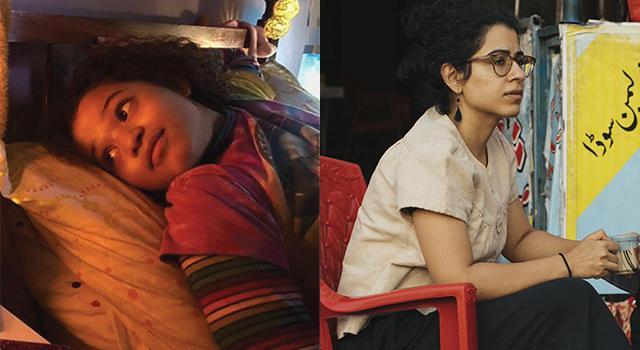Global Studies and International Relations
In keeping with Hampshire's interdisciplinary structure and focus on contemporary questions, our faculty encourages students of international relations and globalization studies to look beyond the study of nation states to the broader context of cross-national and cross-cultural influence and power.
Students explore the relations of economic change to cultural adaptation and political movements both within specific countries of their choosing and as part of a global reorganization after the Cold War.
Students may pursue interests such as immigration, economics, population policy, agriculture, or global music within a study of international relations and globalization studies.
Student Project Titles
- Hijra Identity in Pakistan and the Politics of Representation
- Iranian Nuclear Defiance and the Geopolitical Environment of the Middle East
- Hamas and the PLO: Implications of Political Integration
- (Post)Colonial Narratives: Nationalism, Modernization, and Cultural Imperialism in the Works of Halldor Laxness and Ngugi wa Thiong'o
- Identifying Agamben's Conception of the Homo Sacer in Democratic Kampuchea
Sample First-Year Course
Political Economy of Fair Trade
This course will provide an introduction to a dynamic and important part of the international economy: Fair Trade. Fair Trade is a strategy for transforming international markets to support small-producer livelihoods, build cooperative-based rural economies, and ensure ecological sustainability in endangered agricultural regions. Fair Trade links socially conscious consumers to democratically organized small producers through third-party certifications and social enterprises. In this course, we will understand Fair Trade as an attempt to correct the inequities of the post-colonial, neo-liberal economy. We will examine the historical roots of Fair Trade, compare and contrast Fair Trade with conventional supply chains, and place Fair Trade in a broader context of rural development. We will then critically examine the system's virtues and limitations as a non-governmental, consumer-driven intervention in the global commodity market. Students will have the opportunity to communicate with movement participants and develop hands-on projects.
Sample Courses at Hampshire
- African Development
- America and the World: The Global Debate Over U.S. Hegemony
- Atomic History, Hiroshima to Iran
- Biopower, Biopolitics, and Bare Life
- Border Matters: Mexico and the U.S.
- China Rising: Reorienting the Twenty-first Century Conflict Resolution and Historical Analysis
- Comparative Orientalisms: Afro/Arab/Asian Connections
- The Cuban Revolution: Visions, Reality, Crisis, and Collapse
- Culture, Religion, and Environmentalism
- Empires and Citizenship: Postcoloniality and Puerto Rican Communities
- Environmental Policy in a Time of Globalization
- Ethnography of South Asia
- Evolution of International Regimes: From the League of Nations to Kyoto
- Global Ethnography
- Globalization and Africa
- Global Resource Politics
- Imagining the Third World
- Interrogating Fear: Bioterror, the Environment, and the Construction of Threats
- Israel and Palestine: The Clash of Nationalisms
- Locating Resistance in a Globalizing World
- The National Security State: Covert Operations in American Foreign Policy from the Cold War to the Present
- North-South or South-South? International Economic Relations in the Age of Globalization
- Oil and the Transformation of Arab Economies
- Public Diplomacy
- Reproductive Rights: Domestic and International Perspectives
- Rethinking the Population Problem
- Third World, Second Sex
- Women and Politics in Africa
- World Trade and the WTO
Through the Consortium
- Africa: Problems and Prospects (SC)
- Contemporary Europe (AC)
- Documenting Change: Southeast Asia (AC)
- Gender and Economic Development (UMass)
- International Political Theory (UMass)
- Middle East Politics (MHC)
- Perspectives on War (SC)
- Political Leadership in International Relations (MHC)
- The Press and the Third World (UMass)
- Seminar in Comparative Government (SC)
- The Press and the Third World (UMass)
- World Politics (AC)
Facilities and Resources
Five College Certificate Programs
Through the Five College consortium, Hampshire students can take a range of certificate programs (similar to a minor) in areas relevant to globalization and third world studies. These include International Relations, Buddhist Studies, and African Studies.
The Global Education Office
The Global Education Office (GEO) at Hampshire presents a variety of opportunities for students to incorporate a study-abroad experience into their Hampshire education. GEO also assists with locating and planning study abroad through other programs, fellowships, colleges, or individually designed field study programs.
Eqbal Ahmad Lecture Series
The annual Eqbal Ahmad Lecture series focuses on issues of the developing world and honors the teaching, scholarship, and activism of the late Eqbal Ahmad, a long-time professor of world politics at Hampshire College. The event has attracted many notable speakers. Secretary-General Kofi Annan inaugurated the series in academic year 1998-1999. Other speakers have included renowned professor and author of Orientalism, Edward Said; Palestinian doctor and recent candidate for the presidency of the Palestinian National Authority, Mustafa Barghouthi; as well as New Yorker journalist Seymour Hersh, who broke the Abu Ghraib prison scandal.



